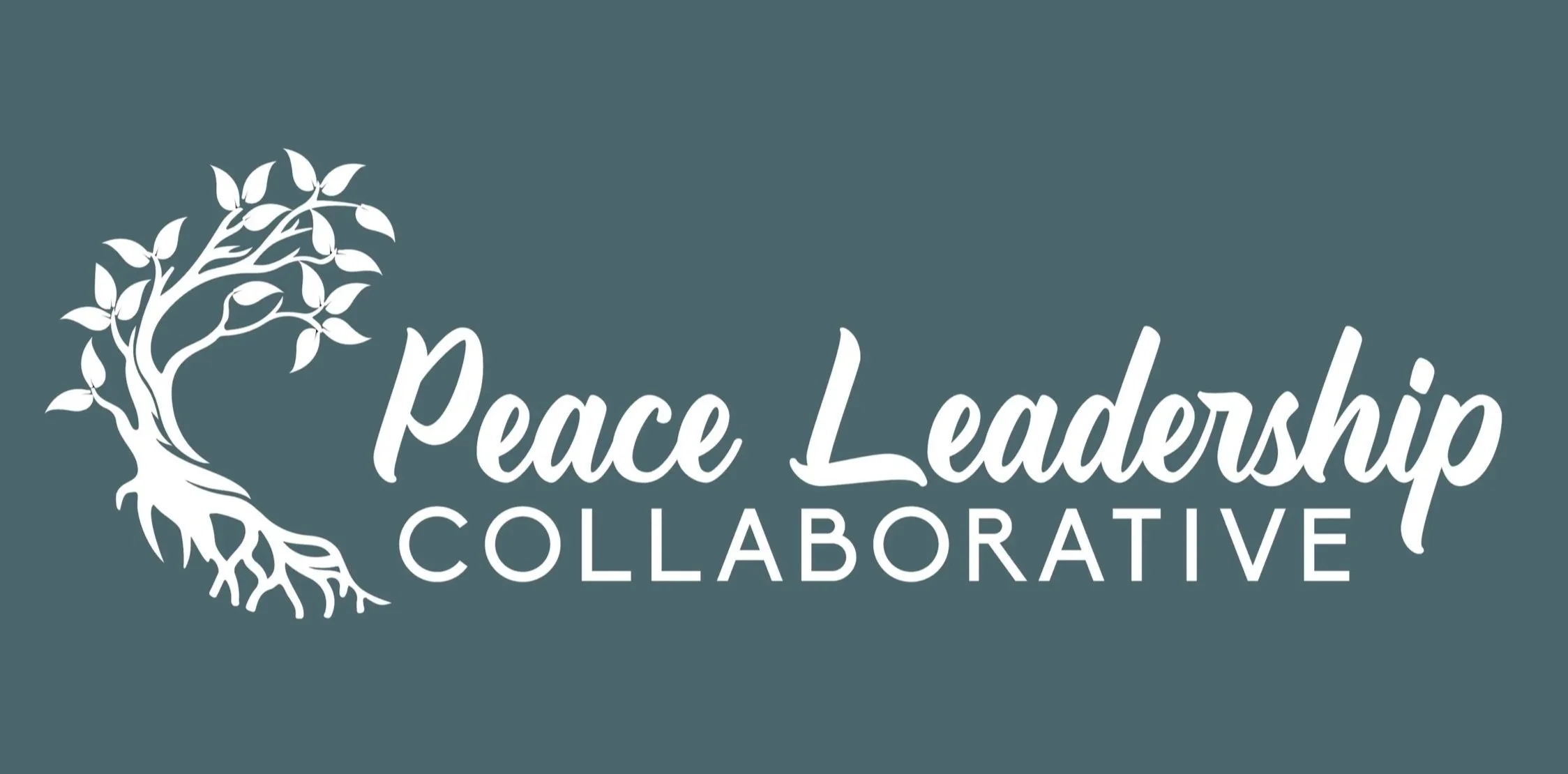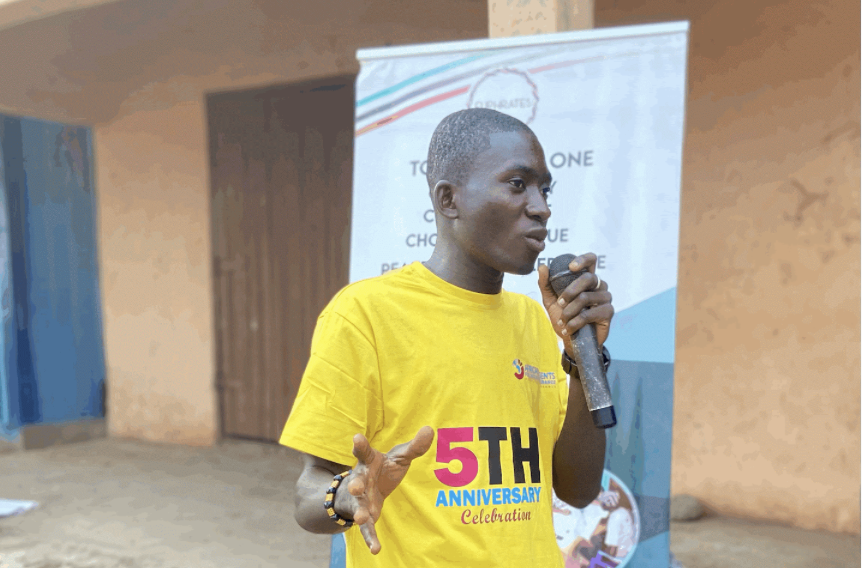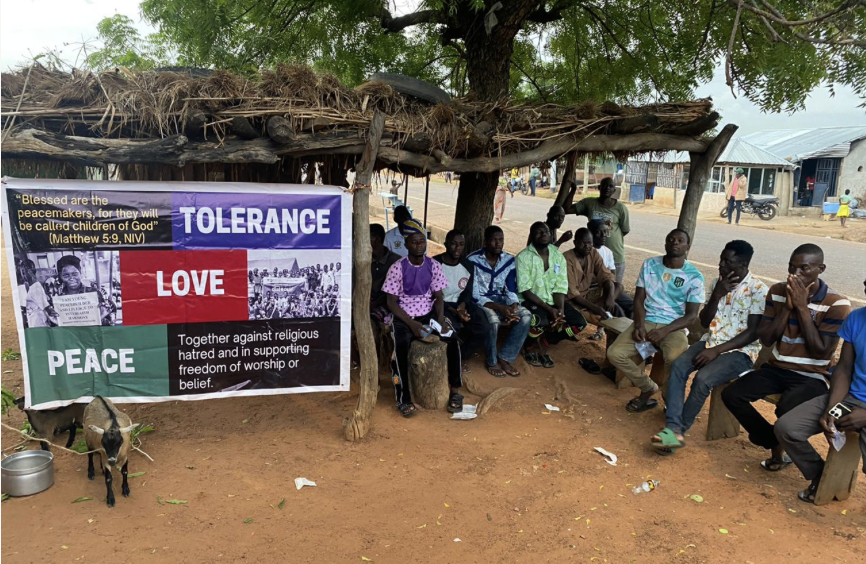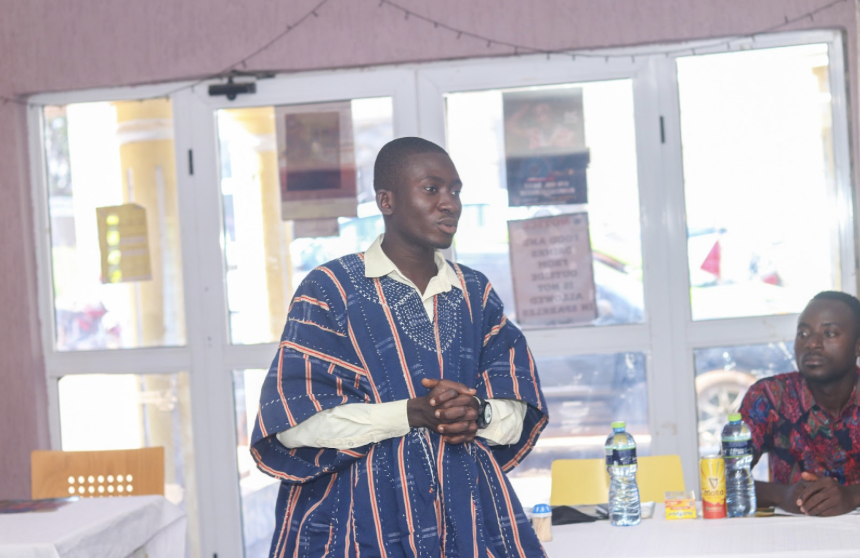Written By Rabab Atwi
At just 27, Issah Toha Shamsoo, a peacebuilder from Ghana, carries a vision for unity that reaches beyond generations and geographical borders. Issah proudly recalls how, as a child, he saw his grandmother resolving conflicts and weaving harmony in her small community. Watching his grandmother laid the foundation for his peacebuilding efforts, inspiring a lifelong passion through his involvement in various initiatives that empower members of his community, particularly religious leaders and young people.
Issah’s achievements in peacebuilding are multifaceted. In 2023, he was recognized as a Kofi Annan Changemaker for 'Promoting Interfaith Harmony and Peace'. He also played an advisory role with the United Nations Office on Drugs and Crime (UNDOC), serving as a youth board member on a project focused on youth-led action to prevent violent extremism. Issah is an alumnus of Euphrates Institute’s 2022 Peace Practice Alliance and now serves as Communications Coordinator.
Photo Credit: Issah Toha Shamsoo.
A Changemaker for Peace
When asked about what inspired his journey into peacebuilding and how this has shaped his vision for lasting harmony, Issah noted that his motivation for building peace was influenced not only by his local environment but also by global violence. These influences have played a pivotal role in shaping his vision for creating safe spaces where community members discuss differences before violence erupts. For example, the 2019 attacks against Muslims in New Zealand and the Easter attacks against Christians in Sri Lanka deeply shook Issah, further reinforcing his belief that faith should never be used as a pretext for violence. In response to his concern that the escalating violence in the world would spread to Ghana and recognizing the urgent need for preventive action, Issah initiated the African Students for Interfaith Tolerance (ASFIT). This youth-led non-profit organization not only creates safe spaces for reconciliation, dialogue, and trust-building in Ghana, but also empowers young people with essential skills and a secure platform to actively transform conflicts, advocate for dialogue and reconciliation, and thereby contribute to creating a peaceful society.
Photo credit: Issah Toha Shamsoo
The Power of Youth and Faith Leaders in Transforming Conflict
According to Issah, young people are important stakeholders who can and should play significant roles in peacebuilding efforts. Reflecting on levels of violence among youth and the causes that lead people to violence, Issah shared that in some countries, government agencies, such as security agencies themselves, target young people, pushing them toward extremist groups that offer weapons and an illusory sense of belonging. In addition, Issah observed that unaddressed economic and social inequalities make communities fertile ground for unrest – “when some people have less and others have a lot, it will create ground for conflict,” he explained. To counter these forces, Issah emphasized that peace requires more than creating opportunities for open dialogue and honest conversations. “We should give young people jobs to make a living, not just talk about peace”, he said. For Issah, pairing dialogue with economic empowerment forms two essential key pillars of his vision for creating sustainable peace.
Photo credit: Issah Toha Shamsoo.
He noted that religious leaders hold enormous influence and can divide or unite people. In places where trust in governments is low, trust in religious and traditional leaders is high, making them key players in the peacebuilding process. On the other hand, when authority is misused, the messages of religious leaders can reinforce unrest and polarization among community members. At the same time, Issah emphasizes, young people have demonstrated that they can also lead powerful social change when given the needed space and support. He pointed to youth-led movements worldwide, such as Fridays for Future, #EndSARS, and #FixTheCountryGh. According to Issah, young peacebuilders often work under immense pressure, navigating skepticism about their abilities, limited access to resources, and a lack of recognition for their contributions. In rural or conflict-prone areas, they face double marginalization—due to both age and socioeconomic background. Despite these challenges, youth-led efforts often bridge divides that older generations struggle to cross, building trust across faiths, ethnicities, and political lines.
“...youth-led efforts often bridge divides that older generations struggle to cross, building trust across faiths, ethnicities, and political lines.”
Pathways Forward
As a young peacebuilder working in a local community where religious and ethnic identity is central to people’s lives and often a source of tension, Issah envisages a future where there is greater awareness and acceptance of diversity. According to Issah, this shift can be achieved partly through religious literacy, interfaith action, and by cultivating curiosity and wonder instead of judgment toward others. He believes we must continue to support and amplify the voices of peace, love, and tolerance wherever we are.
Reflecting on current global crises, Issah believes “hope remains our most potent tool in the face of uncertainty. When paired with community action and organizing, it can catalyze the promotion of peaceful actions in our communities”. Issah’s vision for a peaceful, inclusive, and prosperous future is one shaped by everyday people who show kindness to everyone, regardless of whether they are alike or different; who love their neighbours; and actively contribute to sustaining peaceful societies. Reimagining the future, he suggests, requires the compassionate understanding and action of all of us—including individuals and institutions—working together toward a shared humanity.
“Hope remains our most potent tool in the face of uncertainty. When paired with community action and organizing, it can catalyze the promotion of peaceful actions in our communities”
Issah’s Message
As an advocate of peace, Issah has a firm conviction that strengthening the moral authority of religious leaders, fostering open dialogue among community members, and promoting economic empowerment are the bedrocks for cultivating enduring stability and sustainable peace. His journey resonates with the universal message that when people are empowered with the tools for change, they can lay the groundwork for a better future that benefits everyone. Issah’s approach to peace is rooted in the belief that peacebuilding requires an everyday commitment to opportunity, forgiveness, and dialogue—transforming ordinary moments into concrete steps toward enduring peace.
Photo credit: Issah Toha Shamsoo.
Dr. Rabab Atwi is a graduate of Chapman University, works in higher education and is a passionate advocate for the transformative power of peace leadership. Her work and publications focus on peace leadership and refugees, reflecting her commitment to empowering marginalized communities to challenge dominant narratives and foster collaboration across diverse groups. Through her work, she envisions contributing to a more peaceful and equitable world.
Issue 03 | Reimagining a New Generation of Peace
-

No Planet, No Peace: Reimagining Peacebuilding through Planetary Stewardship
-
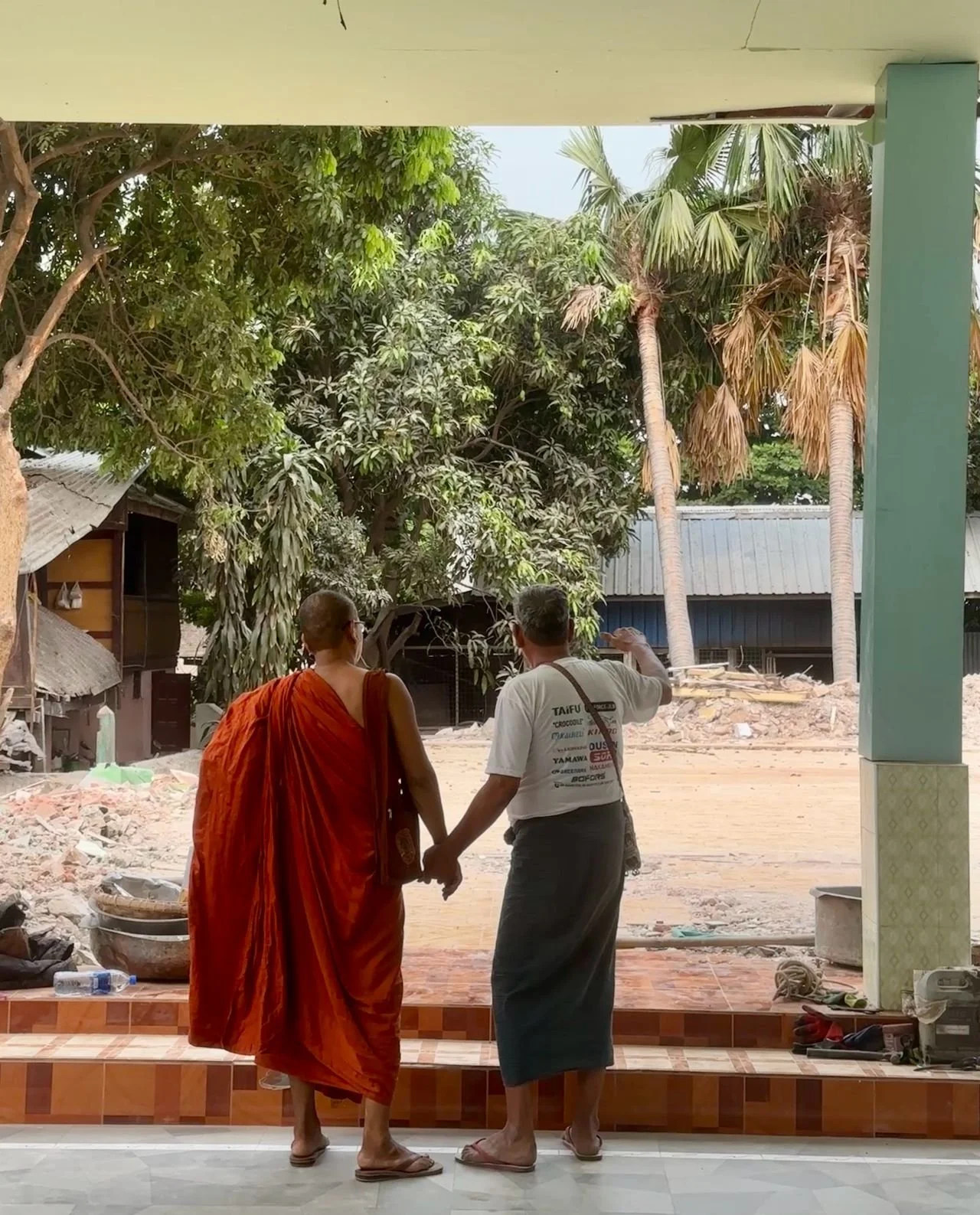
When the Earth Shook, Faith Held Us Together
-
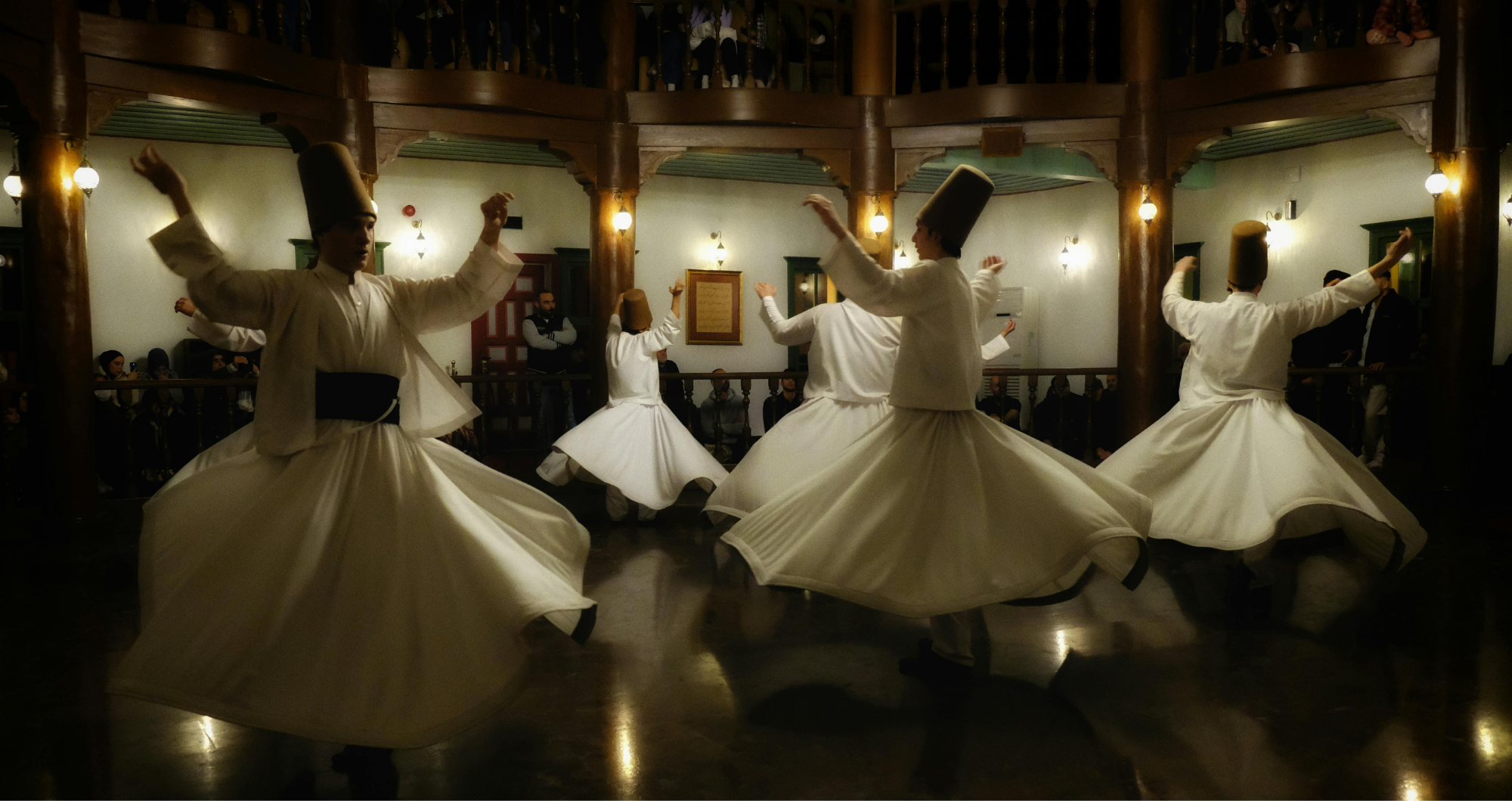
Reimagining Peace through Rumi’s Lenses: A Voyage into Poetic Wisdom, Politics, Diplomacy, and the Transcendental
-

An Alternative Peacebuilding Vision in a Post-Liberal Era
-

Sing My Soul
-

Reimagining a New Generation of Peace with Servant Leadership and Nonviolent Communication
-

Threading the Future: Mentoring the Next Generation of Peacebuilders
-

If We Can Teach AI to Practise Empathy: Nonflict and a Generation of Peacemakers
-

Peace Leader Spotlight | From Grandmother’s Legacy to Global Peacebuilding: Issah Toha Shamsoo
-

Young Leaders for Peace: Meeting the Moment through Youth Peace Leadership Development at the University for Peace
-
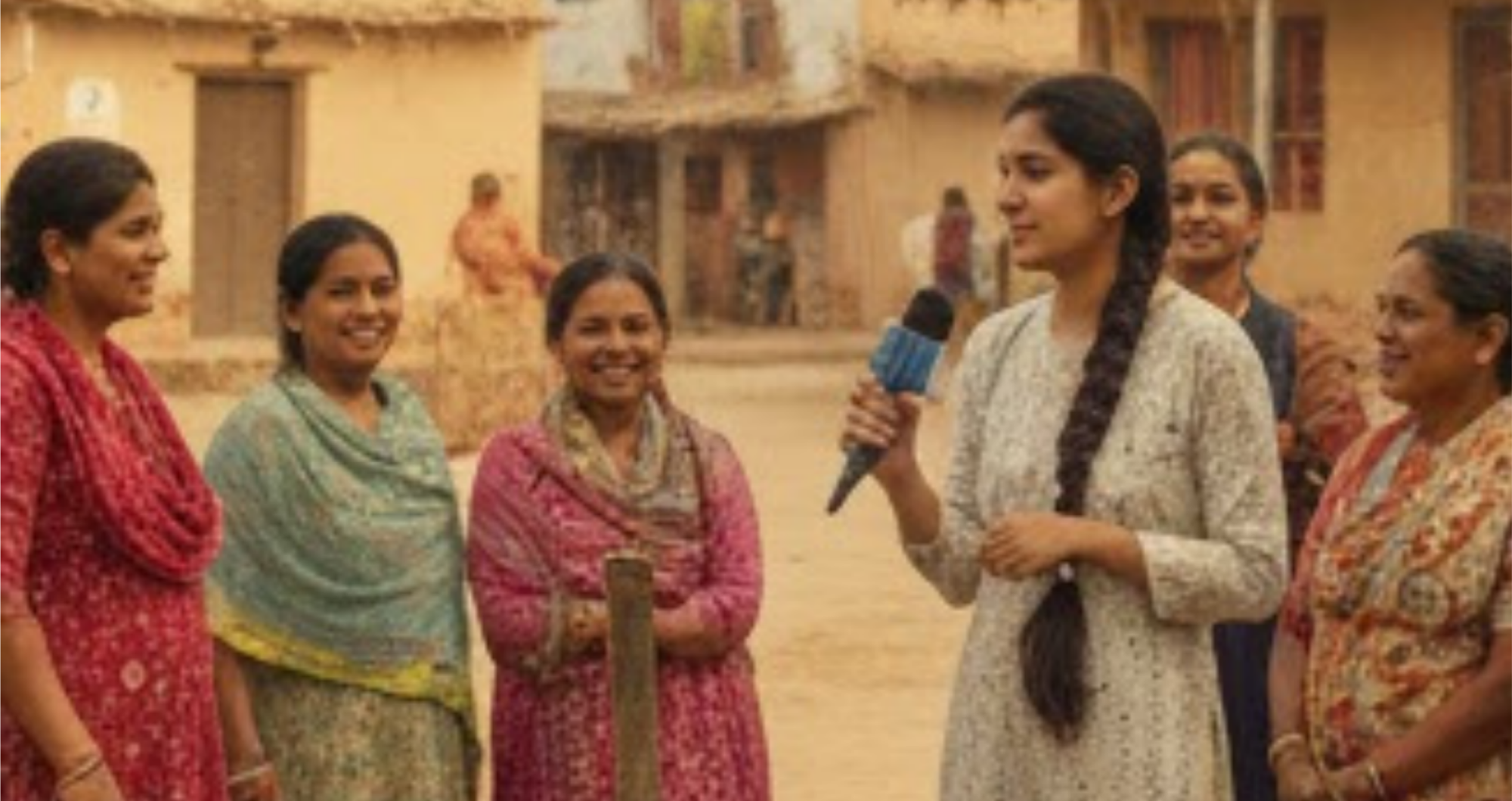
Reimagining Peace Through Young Voices in India: Spotlight on Women Journalists and Their Stories
-

Peace Dwelling and Belonging: Stan Amaladas on rethinking what it means to live well with each other
-

Pockets and Peace Design: A collaborative design framework to advance health equity and build peace
-

From Shrinking Spaces to Shared Strategies: Insights from Central Asia on how to build collective action for conflict prevention and peacebuilding
-

From War Memories to Peace Encounters: Constructive Usage of Veteran Experience
-

Call for Submissions | Issue 04
